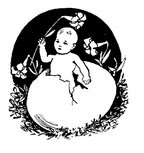
What’s In a Name?
GUEST COLUMN
Far be it from me to be judgmental. The names my friends give their children are their business. But ever since my otherwise sensible college roommate named his first-born daughter McKenzie, I’ve been off the reservation.
What do girls’ names like Jordan, Chandler, Avery, Cassidy, Haden, McCall, Brooke, and Brittany have in common, other than usefulness in connoting a yacht club? First, they are unrelievedly masculine. It is as though Mom and Dad were thinking, “We want for young Lindsay to be taken seriously after she is graduated from Princeton and moves to the corporate boardroom. It won’t do to name her Mary Margaret.”
Could be. Certainly Mary, Margaret, and Michelle sound a lot more feminine than Mallory, Macey, and Maguire. But why stop at McKenzie? If boardroom virtuosity is so important, why not put the poor kid out of her misery and name her Carnegie or Forbes or Trump? (Still, one thinks of a certain politician named Margaret who did rather well despite the handicap of a ladylike moniker.)
Second, these names are unrelievedly Anglo-Saxon and Celtic. Though Yuppie parents loudly yap about diversity, they obviously want for little Taylor-with-two-middle-names to grow up to be a WASP. She may not be a blue-blood, but she’ll need more space on application blanks than a Mayflower preppie-with-hyphenated-last-names.
You May Also Enjoy
America Magazine Blames the Scandals on "A Repressive Clerical Culture"... Eucharistic Ring-Around-the-Rosy... Zen Ecumenism... Silliness Has Serious Consequences... more
On at least one college campus, teaching certain aspects of the Catholic faith -- even in the context of a class on Catholicism -- is considered "hate speech."
"I think you should stop looking over your shoulders at Rome."

